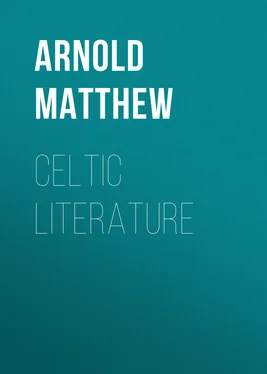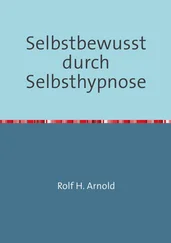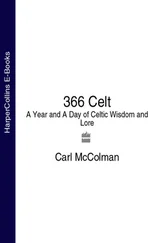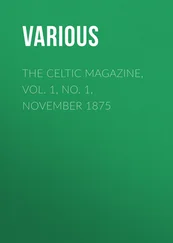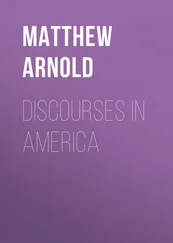Matthew Arnold - Celtic Literature
Здесь есть возможность читать онлайн «Matthew Arnold - Celtic Literature» — ознакомительный отрывок электронной книги совершенно бесплатно, а после прочтения отрывка купить полную версию. В некоторых случаях можно слушать аудио, скачать через торрент в формате fb2 и присутствует краткое содержание. Жанр: foreign_antique, Языкознание, literature_19, Культурология, на английском языке. Описание произведения, (предисловие) а так же отзывы посетителей доступны на портале библиотеки ЛибКат.
- Название:Celtic Literature
- Автор:
- Жанр:
- Год:неизвестен
- ISBN:нет данных
- Рейтинг книги:5 / 5. Голосов: 1
-
Избранное:Добавить в избранное
- Отзывы:
-
Ваша оценка:
- 100
- 1
- 2
- 3
- 4
- 5
Celtic Literature: краткое содержание, описание и аннотация
Предлагаем к чтению аннотацию, описание, краткое содержание или предисловие (зависит от того, что написал сам автор книги «Celtic Literature»). Если вы не нашли необходимую информацию о книге — напишите в комментариях, мы постараемся отыскать её.
Celtic Literature — читать онлайн ознакомительный отрывок
Ниже представлен текст книги, разбитый по страницам. Система сохранения места последней прочитанной страницы, позволяет с удобством читать онлайн бесплатно книгу «Celtic Literature», без необходимости каждый раз заново искать на чём Вы остановились. Поставьте закладку, и сможете в любой момент перейти на страницу, на которой закончили чтение.
Интервал:
Закладка:
And at what a moment does it assure them of this, good heavens! At a moment when the ice is breaking up in England, and we are all beginning at last to see how much real confusion and insufficiency it covered; when, whatever may be the merits,—and they are great,—of the Englishman and of his strong sense and sturdy morality, it is growing more and more evident that, if he is to endure and advance, he must transform himself, must add something to his strong sense and sturdy morality, or at least must give to these excellent gifts of his a new development. My friend Mr. Goldwin Smith says, in his eloquent way, that England is the favourite of Heaven. Far be it from me to say that England is not the favourite of Heaven; but at this moment she reminds me more of what the prophet Isaiah calls, ‘a bull in a net.’ She has satisfied herself in all departments with clap-trap and routine so long, and she is now so astounded at finding they will not serve her turn any longer! And this is the moment, when Englishism pure and simple, which with all its fine qualities managed always to make itself singularly unattractive, is losing that imperturbable faith in its untransformed self which at any rate made it imposing,—this is the moment when our great organ tells the Celts that everything of theirs not English is ‘simply a foolish interference with the natural progress of civilisation and prosperity;’ and poor Talhaiarn, venturing to remonstrate, is commanded ‘to drop his outlandish title, and to refuse even to talk Welsh in Wales!’
But let us leave the dead to bury their dead, and let us who are alive go on unto perfection. Let the Celtic members of this empire consider that they too have to transform themselves; and though the summons to transform themselves he often conveyed harshly and brutally, and with the cry to root up their wheat as well as their tares, yet that is no reason why the summons should not be followed so far as their tares are concerned. Let them consider that they are inextricably bound up with us, and that, if the suggestions in the following pages have any truth, we English, alien and uncongenial to our Celtic partners as we may have hitherto shown ourselves, have notwithstanding, beyond perhaps any other nation, a thousand latent springs of possible sympathy with them. Let them consider that new ideas and forces are stirring in England, that day by day these new ideas and forces gain in power, and that almost every one of them is the friend of the Celt and not his enemy. And, whether our Celtic partners will consider this or no, at any rate let us ourselves, all of us who are proud of being the ministers of these new ideas, work incessantly to procure for them a wider and more fruitful application; and to remove the main ground of the Celt’s alienation from the Englishman, by substituting, in place of that type of Englishman with whom alone the Celt has too long been familiar, a new type, more intelligent, more gracious, and more humane.
THE STUDY OF CELTIC LITERATURE
‘They went forth to the war, but they always fell.’
Some time ago I spent some weeks at Llandudno, on the Welsh coast. The best lodging-houses at Llandudno look eastward, towards Liverpool; and from that Saxon hive swarms are incessantly issuing, crossing the bay, and taking possession of the beach and the lodging-houses. Guarded by the Great and Little Orme’s Head, and alive with the Saxon invaders from Liverpool, the eastern bay is an attractive point of interest, and many visitors to Llandudno never contemplate anything else. But, putting aside the charm of the Liverpool steamboats, perhaps the view, on this side, a little dissatisfies one after a while; the horizon wants mystery, the sea wants beauty, the coast wants verdure, and has a too bare austereness and aridity. At last one turns round and looks westward. Everything is changed. Over the mouth of the Conway and its sands is the eternal softness and mild light of the west; the low line of the mystic Anglesey, and the precipitous Penmaenmawr, and the great group of Carnedd Llewelyn and Carnedd David and their brethren fading away, hill behind hill, in an aërial haze, make the horizon; between the foot of Penmaenmawr and the bending coast of Anglesey, the sea, a silver stream, disappears one knows not whither. On this side, Wales,—Wales, where the past still lives, where every place has its tradition, every name its poetry, and where the people, the genuine people, still knows this past, this tradition, this poetry, and lives with it, and clings to it; while, alas, the prosperous Saxon on the other side, the invader from Liverpool and Birkenhead, has long ago forgotten his. And the promontory where Llandudno stands is the very centre of this tradition; it is Creuddyn, the bloody city , where every stone has its story; there, opposite its decaying rival, Conway Castle, is Diganwy, not decaying but long since utterly decayed, some crumbling foundations on a crag top and nothing more; Diganwy, where Mael-gwyn shut up Elphin, and where Taliesin came to free him. Below, in a fold of the hill, is Llan-rhos, the church of the marsh, where the same Mael-gwyn, a British prince of real history, a bold and licentious chief, the original, it is said, of Arthur’s Lancelot, shut himself up in the church to avoid the Yellow Plague, and peeped out through a hole in the door, and saw the monster and died. Behind among the woods, is Gloddaeth, the place of feasting , where the bards were entertained; and farther away, up the valley of the Conway towards Llanrwst, is the Lake of Ceirio-nydd and Taliesin’s grave. Or, again, looking seawards and Anglesey-wards you have Pen-mon, Seiriol’s isle and priory, where Mael-gwyn lies buried; you have the Sands of Lamentation and Llys Helig, Heilig’s Mansion , a mansion under the waves, a sea-buried palace and realm. Hac ibat Simois ; hic est Sigeia tellus .
As I walked up and down, looking at the waves as they washed this Sigeian land which has never had its Homer, and listening with curiosity to the strange, unfamiliar speech of its old possessors’ obscure descendants,—bathing people, vegetable-sellers, and donkey-boys, who were all about me, suddenly I heard, through the stream of unknown Welsh, words, not English, indeed, but still familiar. They came from a French nursery-maid, with some children. Profoundly ignorant of her relationship, this Gaulish Celt moved among her British cousins, speaking her polite neo-Latin tongue, and full of compassionate contempt, probably, for the Welsh barbarians and their jargon. What a revolution was here! How had the star of this daughter of Gomer waxed, while the star of these Cymry, his sons, had waned! What a difference of fortune in the two, since the days when, speaking the same language, they left their common dwelling-place in the heart of Asia; since the Cimmerians of the Euxine came in upon their western kinsmen, the sons of the giant Galates; since the sisters, Gaul and Britain, cut the mistletoe in their forests, and saw the coming of Cæsar! Blanc , rouge , rocher champ , église , seigneur ,—these words, by which the Gallo-Roman Celt now names white, and red, and rock, and field, and church, and lord, are no part of the speech of his true ancestors, they are words he has learnt; but since he learned them they have had a worldwide success, and we all teach them to our children, and armies speaking them have domineered in every city of that Germany by which the British Celt was broken, and in the train of these armies, Saxon auxiliaries, a humbled contingent, have been fain to follow; the poor Welshman still says, in the genuine tongue of his ancestors, 3 3 Lord Strangford remarks on this passage:—‘Your Gomer and your Cimmerians are of course only lay figures, to be accepted in the rhetorical and subjective sense. As such I accept them, but I enter a protest against the “genuine tongue of his ancestors.” Modern Celtic tongues are to the old Celtic heard by Julius Cæsar, broadly speaking, what the modern Romanic tongues are to Cæsar’s own Latin. Welsh, in fact, is a detritus ; a language in the category of modern French, or, to speak less roughly and with a closer approximation, of old Provençal, not in the category of Lithuanian, much less in the category of Basque. By true inductive research, based on an accurate comparison of such forms of Celtic speech, oral and recorded, as we now possess, modern philology has, in so far as was possible, succeeded in restoring certain forms of the parent speech, and in so doing has achieved not the least striking of its many triumphs; for those very forms thus restored have since been verified past all cavil by their actual discovery in the old Gaulish inscriptions recently come to light. The phonesis of Welsh as it stands is modern, not primitive its grammar,—the verbs excepted,—is constructed out of the fragments of its earlier forms, and its vocabulary is strongly Romanised, two out of the six words here given being Latin of the Empire. Rightly understood, this enhances the value of modern Celtic instead of depreciating it, because it serves to rectify it. To me it is a wonder that Welsh should have retained so much of its integrity under the iron pressure of four hundred years of Roman dominion. Modern Welsh tenacity and cohesive power under English pressure is nothing compared with what that must have been.’
gwyn , goch , craig , maes , llan , arglwydd ; but his land is a province, and his history petty, and his Saxon subduers scout his speech as an obstacle to civilisation; and the echo of all its kindred in other lands is growing every day fainter and more feeble; gone in Cornwall, going in Brittany and the Scotch Highlands, going, too, in Ireland; and there, above all, the badge of the beaten race, the property of the vanquished.
Интервал:
Закладка:
Похожие книги на «Celtic Literature»
Представляем Вашему вниманию похожие книги на «Celtic Literature» списком для выбора. Мы отобрали схожую по названию и смыслу литературу в надежде предоставить читателям больше вариантов отыскать новые, интересные, ещё непрочитанные произведения.
Обсуждение, отзывы о книге «Celtic Literature» и просто собственные мнения читателей. Оставьте ваши комментарии, напишите, что Вы думаете о произведении, его смысле или главных героях. Укажите что конкретно понравилось, а что нет, и почему Вы так считаете.
